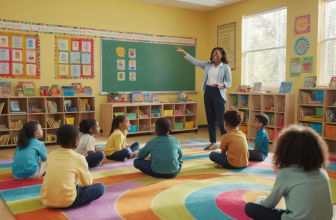
Schools have long been the cornerstone of education for students around the globe. Yet their policies can become outdated or inadequate to meet current student needs, hindering progress and limiting learning potential. Therefore, reviewing school policies periodically and assessing their efficacy is essential to guarantee they benefit students. In this article, we’ll look at five school policies that need to be changed for student benefit:
1. Homework Policy
Homework has long been an integral part of school culture. But its effectiveness as a learning tool remains up for debate. Students often spend countless hours doing assignments, leaving little time for other activities. Furthermore, some may find the work too overwhelming, making them feel stressed and overwhelmed. Therefore, schools need to review their policies regarding homework and make necessary modifications, so students aren’t overburdened with assignments.
Limit Homework Hours
Schools should consider restricting the number of hours students spend on homework. Instead of assigning a large amount, teachers should prioritize quality over quantity when giving assignments. This approach will guarantee students can finish their tasks within an acceptable amount of time, leaving them with more free time for other activities.
Oppose Homework on Weekends and Holidays
Weekends and holidays are an integral part of student life. These days should be used for rest, relaxation, and quality time with family and friends. Schools should consider banning homework on weekends and holidays, allowing students to take a break from their studies while recharging their batteries.
2. Dress Code Policy
Finally, let us examine the dress code policy in detail.
Dress codes have been an integral part of school policies for decades. Their primary purpose is to maintain decorum and discipline among students, but some can be overly restrictive, hindering self-expression. Schools must review their dress code policies and modify them to avoid becoming too demanding.
Allow Casual Attire
Schools should consider allowing casual attire for students. This policy will enable students to express their individuality and personality while maintaining decorum, making them feel more comfortable in their skin and more secure overall.
Remove Gender-Based Dress Codes
Gender-based dress codes have been a contentious issue for years. Unfortunately, they can be overly restrictive and inhibit students’ self-expression. Schools should abolish gender-based dress codes and allow students to dress according to their identity.
3. Grading Policy
Grades are an integral part of education. Unfortunately, they can sometimes be unfair to students. The traditional grading system puts too much pressure on students, leading to stress and anxiety. Schools need to review their grading policies and make necessary modifications to remain fair and equitable for all learners.
Adopt a Pass/Fail System
Schools should consider adopting a pass/fail system instead of the traditional grading system. It will reduce student stress and encourage them to focus on learning instead of grades.
Emphasis on Continuous Assessment
Continuous assessment is an invaluable way to monitor students’ progress. Schools should emphasize continuous assessment instead of solely relying on exams as the means for evaluation, as this approach provides more accurate results and encourages learners to stay motivated.
4. Zero Tolerance Policy
Zero-tolerance policies have been an integral part of school administration for years, helping maintain a secure and disciplined student atmosphere. Unfortunately, these standards can sometimes be too strict with unfair consequences. Schools need to review their zero-tolerance procedures and make necessary modifications to remain fair and equitable.
Adopt Restorative Justice Practices
Restorative justice practices seek to repair the harm caused by misconduct and restore relationships between individuals. Schools should consider implementing vital justice methods instead of solely using punitive measures; this approach will encourage students to accept responsibility for their actions and make amends for wrongdoings.
Permit Individual Consideration
Zero-tolerance policies often leave little room for individual consideration regarding disciplinary actions. Schools should consider allowing each personal case consideration when taking disciplinary actions; this approach will guarantee that these decisions are fair and just, considering all cases’ unique circumstances.
5. A Standardized Testing Policy
Standardized testing has been an integral part of school policy for years. These assessments aim to evaluate a student’s academic performance and progress; however, standardized tests can often be stressful, hindering learning potential. Schools need to review their standardized testing policies and make necessary modifications so that they benefit students instead.
Reduce the Number of Standardized Tests
Schools should consider reducing the number of standardized tests students must take. This approach will lessen stress and anxiety related to testing, allowing students to focus on learning instead.
Explore Alternative Forms of Evaluation
Standardized tests are one of many ways to evaluate a student’s progress. Schools should explore alternative evaluation forms, such as project-based assessments, for more accurate feedback on an individual student’s development.
FAQs:
Q: Why must schools change their policies?
A: Schools must adjust their policies to benefit students and meet their evolving needs.
Q: What is the pass/fail system?
A: The pass/fail system is an alternative grading method in which students either pass or fail a course without receiving a letter grade.
Q: What is Restorative Justice?
A: Restorative justice is a practice that seeks to repair the harm caused by misconduct and rebuild relationships between individuals.
Conclusion:
Schools must periodically revisit their policies to make sure they benefit students. The policies discussed in this article provide just a few examples of those needing an improved educational system. By enacting these regulations, schools can create an equitable and inclusive learning environment catering to each student’s needs. We must prioritize students’ well-being and growth so that all can reach their full potential.




